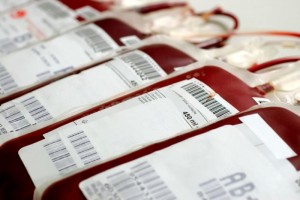
Manufactured blood ready for human trials in 2 years
Rare blood types always prove to be the most difficult to supply blood to – and understandably so. However, artificial blood made from Stem cells could soon drive a wedge between borderline supply and lack thereof. This will provide peace of mind to the patients as well as the professionals attending them.
Two years: that’s how long it will take for scientific teams around the world to begin clinical human trials with manufactured blood. In an attempt to develop transfusion, transplantation and regenerative medicine, the joint England and Wales health authorities are now focusing on increasing the availability of better-matched blood for rare blood types. The shortage of donors is very worrying – it is estimated that a fall of 40% in donors in 2014 when compared to 10 years before will have a devastating ripple effect when it comes to blood supply, as well as when treating patients suffering from disorders like sickle cell anaemia and thalassemia who require frequent blood transfusions. The provision of blood has thus become of paramount importance.
How will the human trials play out?
A small team of 20 volunteers will be given 5 – 10 minutes of lab-made blood. The survival rate of the red blood cells produced in the lab will then be compared to the cells from blood donors.
And how exactly is blood in the labs made?
Scientists are using pluripotent stem cells sourced from adult and umbilical cord blood. Stem cells come from multi cellular organisms which are able to produce more cells of the same type – like a little regenerative factory. Dr Watkins which heads a team of these scientists explains:
“The manufactured red cell trials form part of our world-leading work in regenerative medicine and one of eight research goals for 2015-2020 that will bring long-term improvements for patients and donors.”
This is great news, especially when a recent study suggests that blood shelf life is actually more like 3 weeks than 6 weeks – the standard for blood banks, as blood starts losing the ability to deliver oxygen once the 3 weeks expire.
Source: http://bit.ly/1Cmt8br







